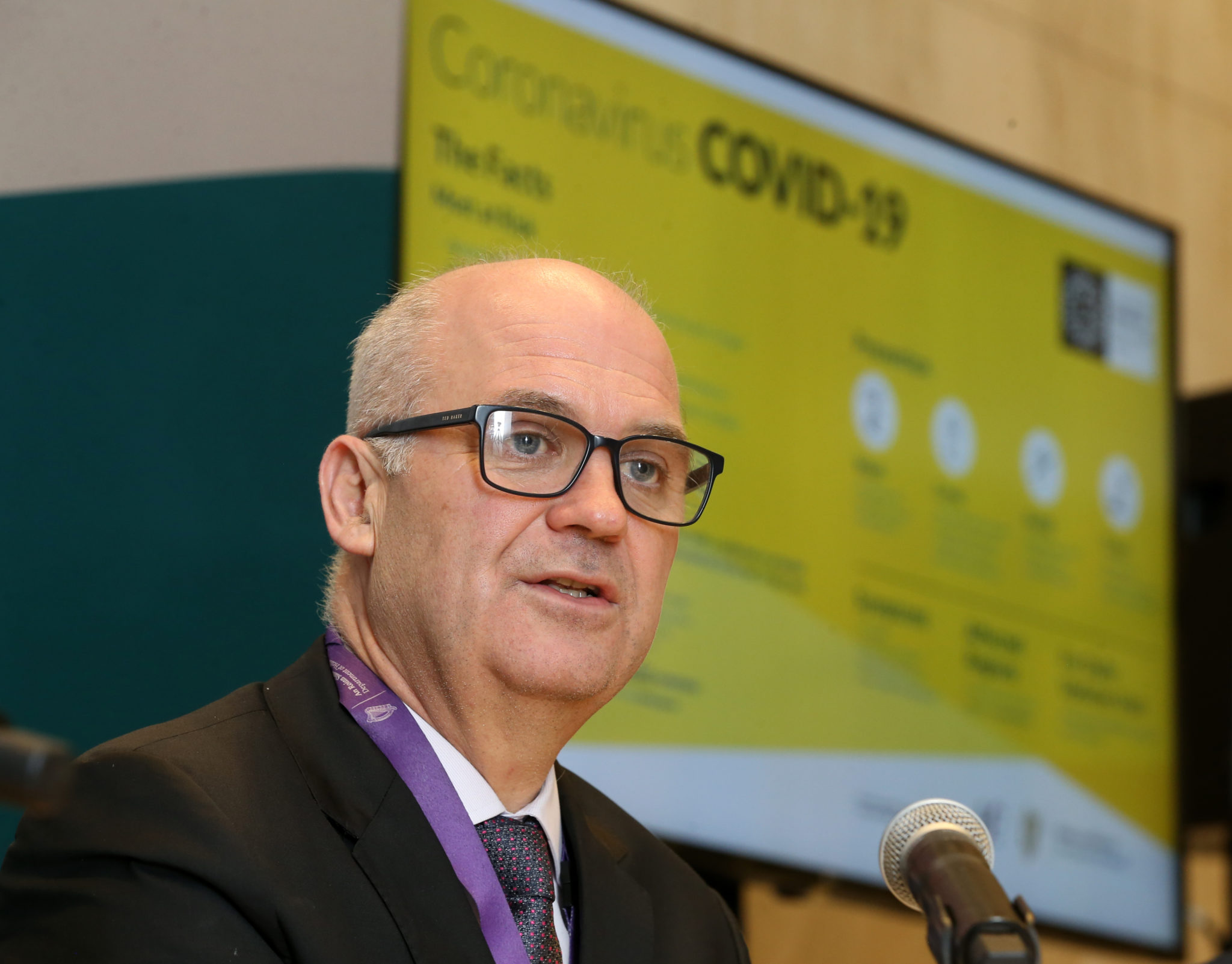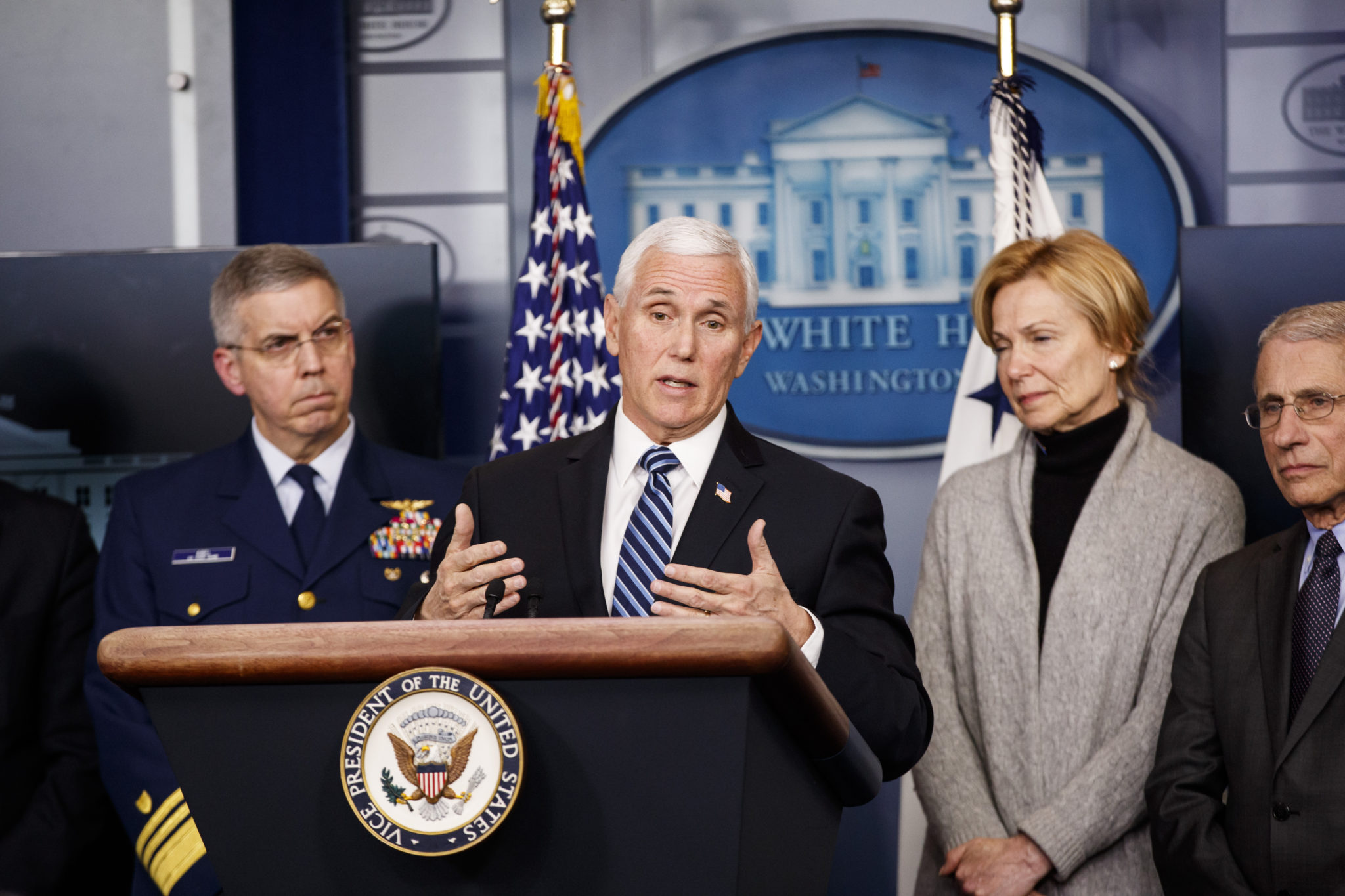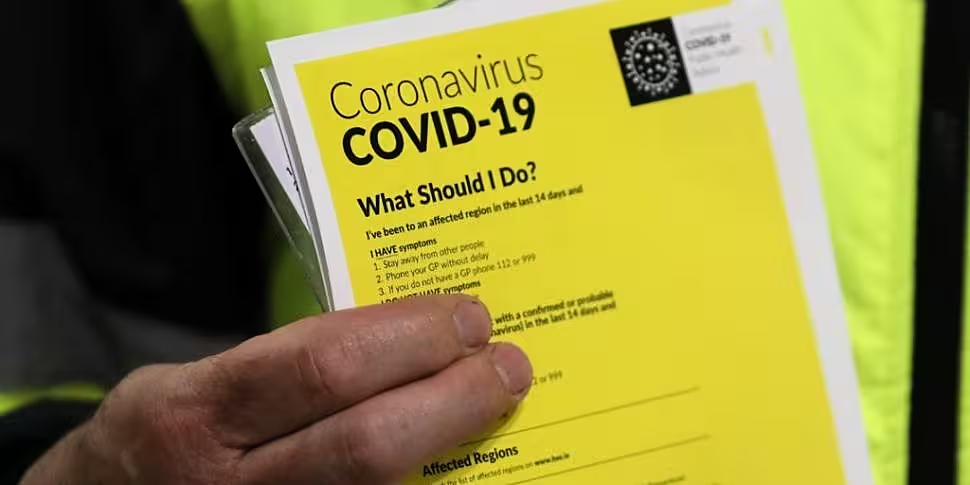A leading doctor is calling for the establishment of a cross-party Emergency Cabinet to deal with the coronavirus outbreak.
It comes after the number of confirmed cases on the island of Ireland rose to 22.
Yesterday, five new cases were confirmed in the Republic, along with one more in the North.
On Newstalk Breakfast with Susan Keogh this morning, Professor Sam McConkey from the Department of International Health and Tropical Medicine at the Royal College of Surgeons said Ireland’s response so far “has been like a small mouse facing an elephant.”
“We haven’t got into the really sweeping, all of society, all of industry, all of Government response that is needed to deal with this,” he said.
 The Taoiseach Leo Varadkar (right), alongside HSE Chief Medical Officer Dr Tony Holohan at Government Buildings in Dublin, 06-07-2020. Image: Brian Lawless/PA Wire/PA Images
The Taoiseach Leo Varadkar (right), alongside HSE Chief Medical Officer Dr Tony Holohan at Government Buildings in Dublin, 06-07-2020. Image: Brian Lawless/PA Wire/PA ImagesHe said he views the outbreak as “the biggest challenge to the functioning of our State that we have ever seen.”
“This is a very, very big national emergency and there are a suite of about 20 or 30 very dramatic actions that we could take as a people to fix it.
“China has done that and we have not even touched on that yet. Otherwise, it is just going to spread through our population like the cruise ship, the Diamond Princess.”
He said the response requires a “strong, powerful central government”
“It will require cross-party support,” he said. “As in the leaders of five or six of the biggest parties coming together in an Emergency Cabinet to lead us through this COVID-19 emergency.”
 HSE Chief Medical Officer Dr Tony Holohan gives an update on COVID-19 at the Department of Health in Dublin, 06-03-2020. Image: Sam Boal/RollingNews
HSE Chief Medical Officer Dr Tony Holohan gives an update on COVID-19 at the Department of Health in Dublin, 06-03-2020. Image: Sam Boal/RollingNewsSpeaking last night, the country’s Chief Medical Officer Dr Tony Holohan has said the risk of contracting the virus in Ireland still remains low.
He said officials are able to explain the transmission of all but one of the 18 cases diagnosed in the Republic.
Protection
Anthony Staines, professor of health systems at DCU, said people have a responsibility to protect themselves from the virus – which may be around for many months.
“There is a hope that it will die off as summer draws near but that may not happen,” he said.
“It is possible this virus will stay around for a long time. It is up to us to manage it.
“It is up to all of us. Ask yourself, am I using tissues? Am I washing my hands properly? Am I staying a social distance away from people? Because those are the things we can all do.”
There have been more than 100,000 cases of the virus confirmed around the world – the vast majority of them in China.
There have been nearly 7,000 cases in South Korea and over 4,500 in both Iran and Italy.
There are 164 cases in the UK and health officials last night confirmed that two people have now died.
 US Vice President Mike Pence (front) with members of the Coronavirus Task Force at the White House, 07-07-2020. Image: Ting Shen/Xinhua News Agency/PA Images
US Vice President Mike Pence (front) with members of the Coronavirus Task Force at the White House, 07-07-2020. Image: Ting Shen/Xinhua News Agency/PA ImagesIn the US, there are 164 confirmed cases.
Meanwhile, 21 people have tested positive for the virus onboard a cruise ship off the coast of California.
The Grand Princess is currently under orders to keep its distance from shore - but plans are being put in place to bring it to a non-commercial port.
Pope
Meanwhile, Pope Francis has cancelled all his immediate public appearances to avoid crowds gathering during the coronavirus outbreak in Italy.
He will live-stream Sunday and Wednesday's events on the internet from inside the Vatican instead - without any general public participation.
The 83-year-old has also cancelled a Lent retreat as he's suffering from a cold.
Symptoms
The HSE is urging anyone who has been to one of seven coronavirus-affected areas in the past two weeks and is experiencing symptoms of the virus to phone their local GP or Emergency Department without delay.
The symptoms are a cough, shortness of breath, breathing difficulties, fever (high temperature).
If you are feeling well, you are advised to carry on with your normal routine.
People are urged to contact the HSE on 1850 24 1850 if they think they have been in contact with a coronavirus patient or if they were at a healthcare facility in another country where coronavirus patients are being treated.
Health officials say there is no need for masks or gloves.
The best way to protect yourself from the virus is to:
- Wash your hands properly and often
- Cover your mouth and nose with a tissue or your sleeve when you cough and sneeze
- Put used tissues into a bin and wash your hands
- Clean and disinfect frequently touched objects and surfaces
- Avoid close contact with people who are not well.
Do not touch your eyes, nose or mouth if your hands are not clean.









